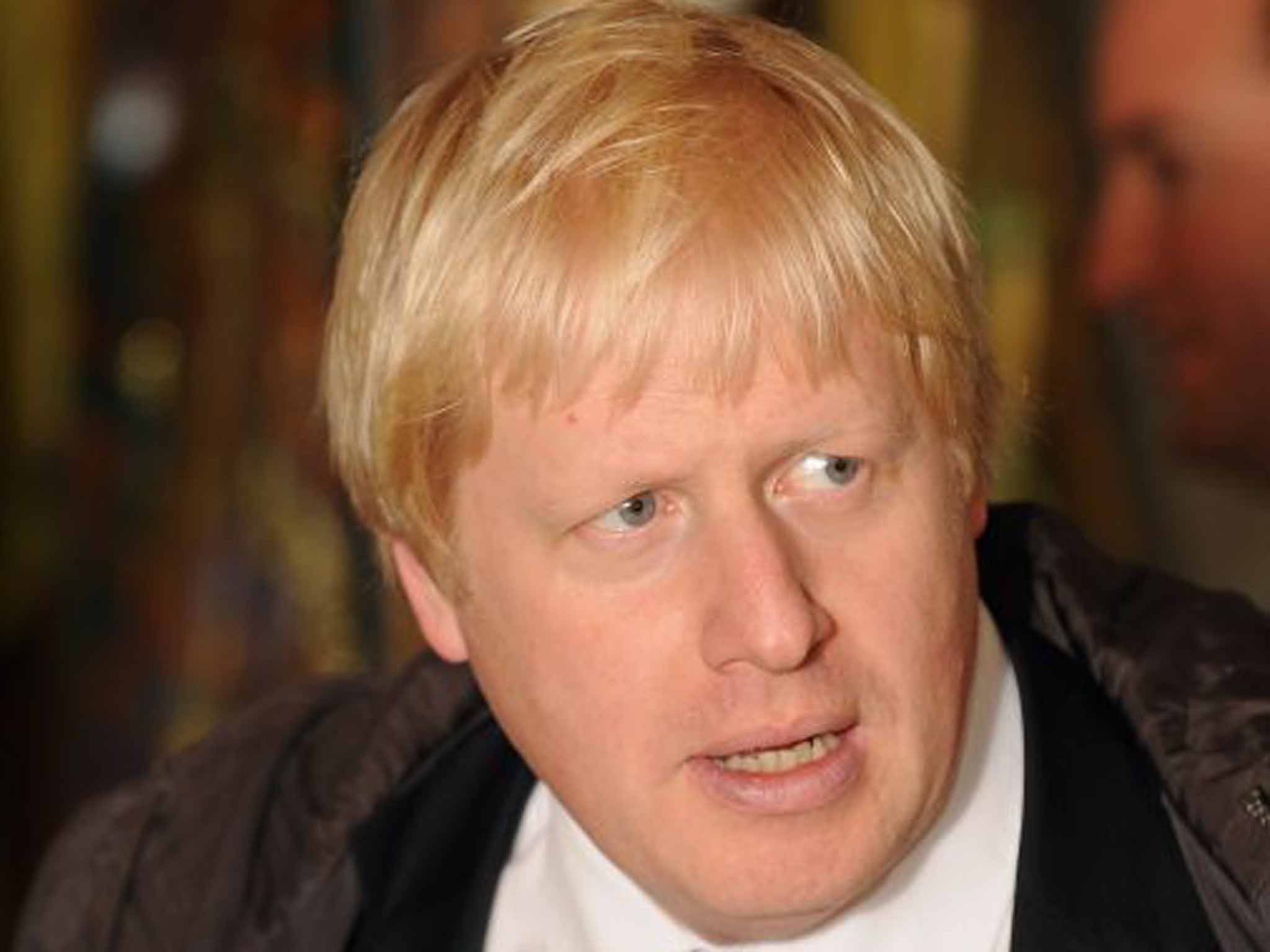What happened when Boris Johnson and mayors from the world’s major cities got together in London?
Over croissants and coffee, the mayors of the world's most influential cities met to discuss what they might (and might not) learn from each other

When conversation turned to Boris Johnson's prime ministerial ambitions, as it inevitably does wherever he sits still long enough to drown the question in wit, the Mayor of London said his chances were “about as good as being blinded by a champagne cork”. Which seemed like a dangerously plausible event for a man of considerable means who also likes a drink.
The former New York mayor Michael Bloomberg, who shared a sofa with Boris at a peculiar event in central London yesterday, was more literal about his own talked-up presidential prospects. “I couldn't win,” the billionaire Republican philanthropist told an audience in London that included an odd jumble of mayors (or a “magnificence”, as the internet suggests).
The at times combative exchange, hosted by think-tanker and Steve Jobs biographer Walter Isaacson, kicked off CityLab 2015, a high-level, highly funded talking shop for “urban innovators”. More than a dozen mayors from conurbations as diverse as Accra and Warsaw gathered around pastry platters and a giant Nespresso machine at the St Pancras Renaissance Hotel.
Speakers also included the architect Zaha Hadid, and David Bradley, the chairman of Atlantic Media, which staged the event alongside Bloomberg and Isaacson's Aspen Institute. But Boris/Bloomberg was the big ticket. And wealth emerged as a theme during a bout of mayoral willy-waving in response to a question about the rivalry between their cities.
“You're much less likely to be murdered in London,” boasted Boris, who was born in New York and, he lamented, has to pay tax in the US as a result. Bruised, Bloomberg bigged up his city's more open approach to wealth and failure. “It's a mindset,” he said. “If you try and you fail and try again and fail, your family brags about 'our son Joe who's started three businesses'. Elsewhere, you call him a failure.”
“As a conservative politician I know all about failure,” Johnson told Bloomberg. He admitted to being jealous of America's “lack of embarrassment about accumulating titanic sums of money… there's a problem in the British psyche still about that.” Bloomberg has an estimated personal fortune of $40bn (£26bn)
Isaacson had asked the men why city halls increasingly seemed to produce contenders for higher office. Bloomberg, who ran New York for almost 10 years until 2013, frequently rejects calls to step up to the White House. “Because you can see what mayors do,” he said. “If there's a body in the street, you blame the mayor. If the trash isn't picked up, blame the mayor… We want executives to make decisions but the people at the head of these governments are policy people. They look good, but the truth is you have to be able to run the railroad.”
Mingling afterwards, mayors found common ground across multiple divides. Bloomberg and Boris had clashed over Uber, the controversial taxi app (Boris sided with the old black cab drivers; Bloomberg championed the free market). Hanna Gronkiewicz-Waltz, the mayor of Warsaw, said her city of just 1.7 million was having the same debate after Uber's arrival last year. But her priority was to complete the city's second underground line, plans for which were drawn up decades ago. Mayoral jamborees were useful, she added, explaining how a similiar event had inspired her to adopt a version of Bloomberg's 311 city information channel.
Alfred Oko Vanderpuije has overground priorities in Accra, the booming Ghanaian capital, where he has been mayor since 2009. He will soon launch the city's first network of express buses. “This is something I picked up by talking to other mayors,” he says. “In the first two years of my mayorship I came to London, to Bogota and South Africa.”
Washington DC mayor Muriel Bowser was looking for inspiration to solve what must be the biggest challenge for all the mayors in the room – “to lessen the gaps between the haves and the have-nots”. For the left-leaning mayor of Bologna, Virginio Merola, diversity was also key. “We have around 120 different nationalities in my city,” he said via a translator. “We are very engaged in making this an opportunity for growth.”
Giorgos Kaminis, whose intray as mayor of Athens is fuller than a rush-hour train out of St Pancras, said he didn't know yet what practical benefits he was going to take away from London. But he was most struck by the interview with Johnson and Bloomberg, not least “how Boris avoided the question of if he's going to run for the leadership of the Conservative Party”.
Subscribe to Independent Premium to bookmark this article
Want to bookmark your favourite articles and stories to read or reference later? Start your Independent Premium subscription today.

Join our commenting forum
Join thought-provoking conversations, follow other Independent readers and see their replies